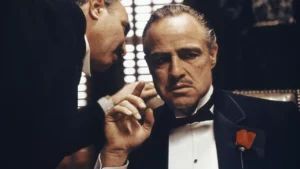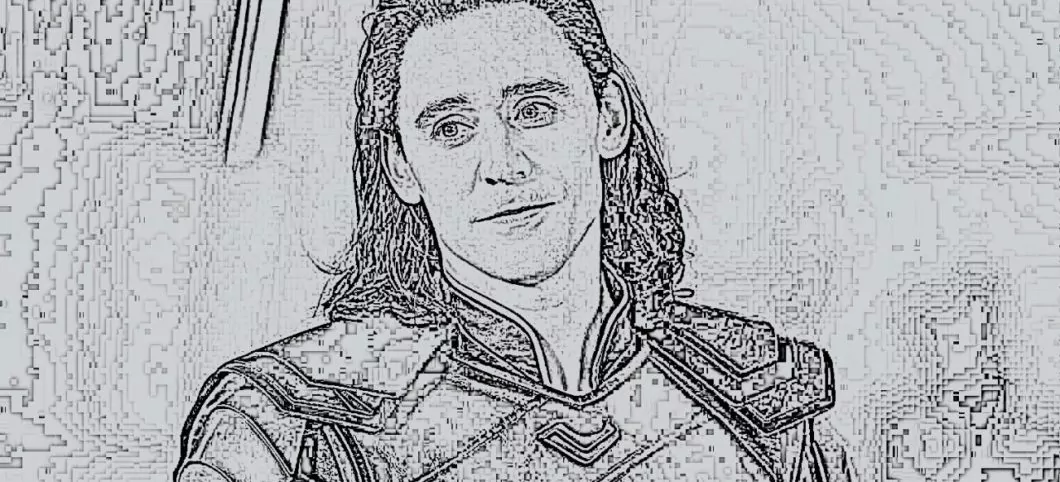
Loki is an MCU antagonist, inspired from the Norse god of the same name. He is the God of Mischief, and lives up to this title. Although he is included in the lists of antagonists, Loki’s journey in the MCU finds him on different sides of the spectrum on different occasions. His character arc is probably the most interesting to observe.
Loki’s Character Arc: From Thor(2011) to Loki Series(2021)
This arc tries to explain the evolution of Loki through out the MCU. His persona, attitude and relationship are deeply explored further.
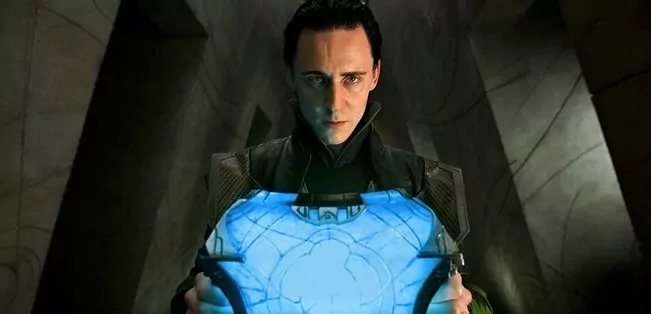
Thor (2011)
In Thor (2011), we see both Loki and Thor as children, when Odin tells them about Asgard’s violent history and war with the Frost Giants of Jotunheim. He also tells them that while only one of them will ascend to the throne, both of them were ‘born to be kings’. While this statement by Odin is never brought up by him again, it leaves a serious impact on Loki, as we will see further on. When Thor is made Odin’s heir, Loki is hurt as he believes his birthright to rule (an idea instilled in him because of Odin’s words) is being denied to him. He is envious to such an extent that he anonymously allows three Frost Giants into Asgard to ruin Thor’s crowning moment.
From that point on starts Loki’s masterful plan, that slowly reveals itself to the audience. Unlike his brother Thor, Loki relies on brains rather than brawl. In the first half of the movie, Loki speaks very little but is mostly seen observing conversations and moods, and uses these observations to his advantage later on. After watching Thor and Odin argue about how to retaliate against the Frost Giants for trespassing, he slyly instigates Thor to attack Jotunheim, all the while pretending that he was not happy with the idea. He is well aware that by doing so Thor would invite Odin’s wrath, which is precisely what happens, as a result of which Odin banishes Thor.
During the fight on Jotunheim, Loki comes in direct contact with a Frost Giant and his hand turns blue instead of freezing over, which makes him doubt the truth about his parentage. After Thor’s banishment, Loki confronts Odin about the truth and is told that he is the son of the King of the Frost Giants, Laufey. Odin adopted him with the hopes that one day Asgard and Jotunheim could unite through Loki.
This revelation leads him to believe that Odin never loved him and only took him in so that he could use him at the appropriate time. He is convinced that he was not made Odin’s heir because he’s a Frost Giant and not an Asgardian. He becomes furious at Odin. For the first time since the start of the movie, Loki appears to act on his emotions instead of his plans. Odin slips into the Odinsleep, a sort of coma, in the midst of the confrontation. Loki appears genuinely concerned for Odin when this happens. However, he is quick to jump at the opportunity and seize the throne.
He pays a visit to Thor, who is being interrogated at a S.H.I.E.L.D facility, and convinces him that Odin is dead and that Frigga wants him to remain in exile. He intimidates Thor’s friends- Lady Sif and the Warriors Three as well as Heimdall to ensure Thor doesn’t return. Loki reacts aggressively when defied, such as freezing Heimdall for insubordination and sending the Destroyer to kill Thor and his friends. This can lead one to believe that he fears losing control.
When Thor apologises to Loki, he ignores it and continues to try and kill him, showing that he held no sentiments towards his adoptive brother. However, when he thinks Thor is dead, he let’s the Destroyer walk away without harming Thor’s friends, as requested by Thor. This shows that at that point, Loki was not entirely evil or sadistic and was only acting upon his grudge towards Thor.
Loki strikes a deal with Laufey, his real father, to help him kill Odin. However he betrays Laufey and kills him in Odin’s quarters, stating “..your death came by the son of Odin.” This hints at the fact that while Loki might not be attached to Thor emotionally, his feelings towards his adoptive parents don’t change even after finding out his true parentage.
His motivation till the very end of the movie remains the same as it was at the start- to usurp Thor and prove himself as a worthy son to Odin and a worthy heir to the throne of Asgard. He confesses to Thor that he never wanted a throne, but only wanted to be seen as Thor’s equal, to be valued as Thor was. This claim is backed by his actions- if the throne was all he wanted, he could’ve let Laufey kill Odin or could’ve killed Odin himself.
He attempts to destroy all of Jotunheim in an attempt to prove himself. While Thor confronts him and stops him from annihilating the frost giants, Odin wakes up from his comatose state and saves both brothers from falling off the Bifrost. Odin then rejects Loki’s intentions to destroy Jotunheim to prove himself. Feeling rejected and betrayed by Odin, Loki let’s go of the staff he was holding onto and lets himself fall off the bridge, leading everyone to think he had died.
In a post-credit scene, a magically concealed Loki indirectly prompts Erik Selvig to work on the Tesseract at a S.H.I.E.L.D facility.
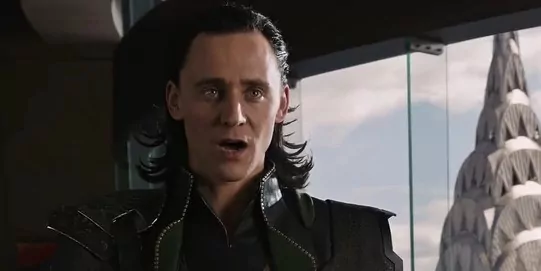
Avengers (2012)
In Avengers (2012), Loki joins forces with the Chitauri. He plans to use the Tesseract to open a portal and bring an army of Chitauri to take over the Earth and then the Universe. It is later revealed that both Loki and the Chitauri are working for Thanos
When Loki arrives at the S.H.I.E.L.D facility to steal the Tesseract, he appears to be menacing and cold. While he was a considerably dark character in Thor (2011), Loki appears purely evil in this movie. He takes over the minds of several people at the facility, including Clint Barton a.k.a Hawkeye and Erik Selvig. Loki steals the Tesseract and escapes.
Loki considers human beings beneath him. He feels no hesitation while killing humans or hurting them. When he attacks a man at a party to get his eyeball impression, he smiles when his actions send people screaming and running. He almost kills an old man for refusing to kneel before him.
After engaging in combat with Captain America and Tony Stark, he surrenders almost willingly, even though he could’ve outmaneuvered them if he wanted. When Thor confronts him, Loki tells Thor that he hated living in Thor’s shadow. He also no longer acknowledges Odin as his father, after feeling betrayed by him. He feels vengeful towards Thor, which becomes one of his reasons for attacking Earth, since Thor claims to have Earth under his protection.
Loki enjoys mocking and intimidating people, and even makes that his plan of action. He hints at a secret Fury is keeping while mocking him, which sets off a chain reaction which leads to the Avengers arguing amongst themselves. This leaves Barton an opening to attack, damage the helicarrier and help Loki escape. However, he sometimes gets ahead of himself, and reveals his plan to Natasha. Nevertheless, the plan still comes into effect.
Loki kills Agent Phil Coulson and drops Thor, who is trapped in a glass prison where Loki was initially kept, from thousands of feet above the ground without hesitation- once again proving that he only feels anger and hatred towards his adoptive brother.
He opens a portal atop the Stark tower, which Tony Stark guesses after he realises Loki likes attention and prefers an audience to witness his victory. In Loki’s conversation with Stark, he comes across as certain that he will win. Loki opens the portal for the Chitauri. He even joins them in the war, but is finally eventually overpowered by the Hulk, who leaves him disoriented and injured. After the Avengers’ victory against the Chitauri, Loki is taken back to Asgard in handcuffs, along with the Tesseract.
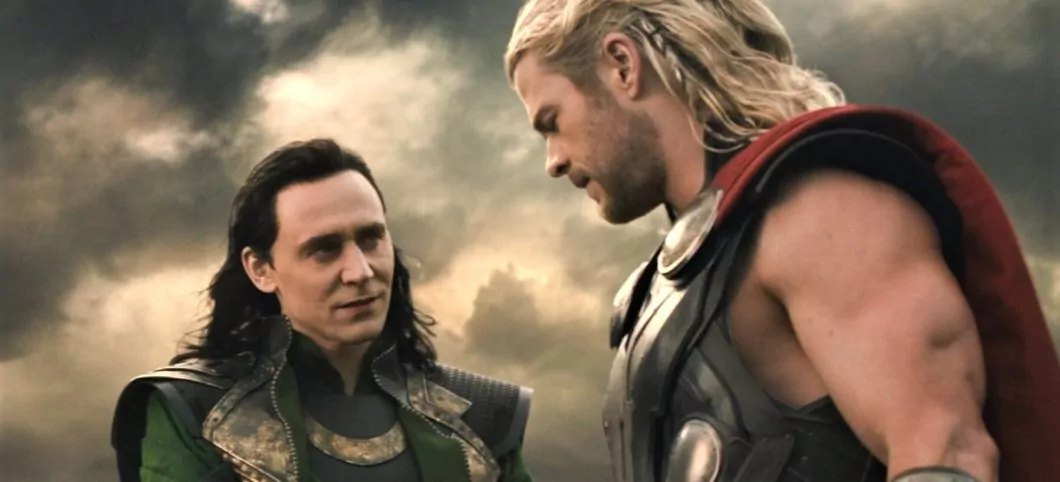
Thor: The Dark World (2013)
Loki is brought to Asgard in chains after he is defeated by the Avengers in Avengers (2012). He believes that his actions are justified, and that to be a king is his birthright. He is chided by Odin, who tells him that he would’ve died as a child if Odin hadn’t saved him.
This is unfair on Odin’s part, as he was the one who told Loki all his life that he was ‘born to rule’, just like Thor. Even though Loki’s actions cannot be justified, Odin was in the wrong for saying that. This might’ve made Loki resent Odin and Thor even further. Especially when he is sentenced to imprisonment for life, and Thor remains the heir of Asgard.
During Loki’s imprisonment, Frigga sends him books and tries to make things easier for him. She also visits him by projecting illusions of herself, a type of magic that Loki learned from her. Loki calls Odin by his name instead of calling him ‘father’. However, he looks apologetic after telling Frigga that she isn’t his mother. This is probably the first time since his first appearance that he looks outwardly and genuinely apologetic about anything.
When Algrim, a mutated Dark Elf, breaks out of prison and frees some other prisoners, Loki appears amused at everything instead of being concerned about the chaos taking place. He acts out of spite and directs Algrim to the royal chambers, probably hoping to harm Thor and Odin.
When Frigga is killed by Algrim and Malakeith, leader of the Dark Elves, Loki is devastated. He puts up an illusion when approached by Thor, but later reveals himself to be broken and distraught. He agrees to help Thor sneak Jane Foster out of Asgard in exchange for revenge against Malekeith and Algrim. Loki pretends to betray Thor to gain Malekeith’s trust momentarily, and then shields Jane while Thor attempts to destroy the Aether. It can be noted that saving Jane played no part in his revenge, so it’s unclear why he did it, and whether it was out of concern for Thor.
He kills Algrim to avenge Frigga, but Algrim stabs him before he dies. It is later revealed to us that Loki was not wounded and faked his death. Thor later tells Loki, now disguised as Odin, that he can’t ascend to the throne. What Loki did with the actual Odin is not revealed to us.
While still dangerous and sly, Loki in this movie appears far less menacing than he did in Avengers (2012). This could be because he considers humans as lesser beings and is colder in demeanor towards them, or maybe because everything that he did on Earth was to make Odin regret his decision or to get Odin’s attention, without fully being aware of his own intentions.
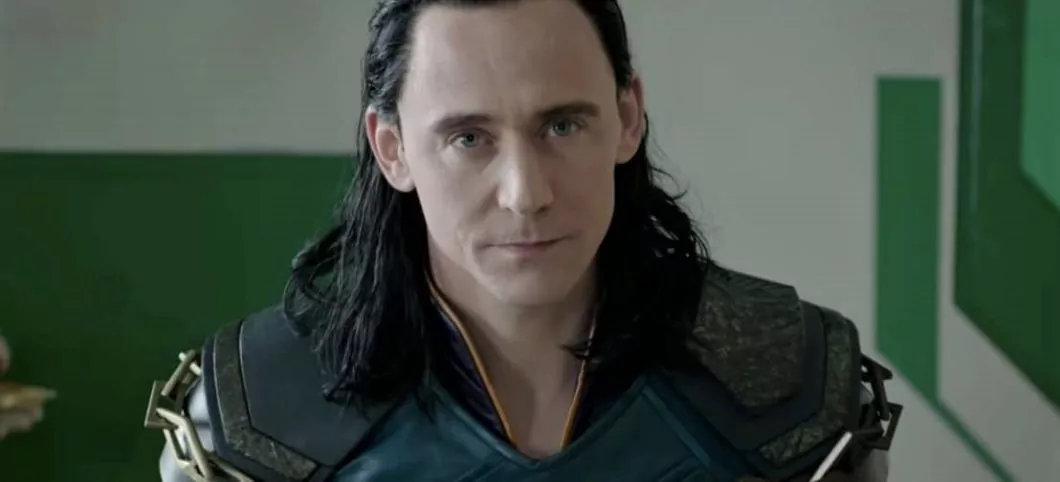
Thor: Ragnarok (2017)
In Thor: Ragnarok, Loki continues to reign while disguised as Odin. He has made statues of himself and puts up plays highlighting his greatness and ‘sacrifice’. Now on the throne, Loki seems to be doing nothing useful but is only feeding his ego. He is negligent to the duties of a king. However, he doesn’t come across as a tyrant anymore, like he did in his earlier appearances. He is annoyed at Thor for coming back to Asgard and discovering his secret.
When forced, Loki reveals that he left Odin at a Care Home on Earth. The brothers arrive there to find the place being demolished, and Loki is abducted by Dr. Strange. Strange sends the brothers to where Odin is. Odin reveals to them that his time has come, and that his passing would free their evil sister Hela. He tells them both that he loves them, at which Loki looks affected. Thor blames Loki for Odin’s death and Hela’s freedom.
Both Loki and Thor land on Sakaar, some weeks apart. Loki is quick to strike a friendship with the eccentric ruler of Sakaar, Grandmaster. One of his greatest weapons is his silvertongue, and this is proven yet again.
Loki approaches Thor when he’s being held captive by the Grandmaster. He offers to help him escape so that they both could overthrow Grandmaster one day. He advises Thor not to go back to Asgard lest Hela kills him. But when snubbed by Thor, he leaves annoyed and even claims he is betting against Thor for the gladiator fight. He no longer looks like he wants Thor dead like he did before, but is quick to let spite take over concern. Moreover, even if he no longer hates Thor, he chooses his safety over Thor’s freedom and life.
He even offers to capture Thor, who escapes with Hulk/Banner, to gain the Grandmaster’s favour. He is captured by Valkyrie, and initially pretends to want to help Thor escape. He later tries to betray Thor for the reward the Grandmaster had offered for Thor’s capture, but his attempts are foiled when Thor outsmart him. What’s interesting is- while he was pretending to help Thor, Loki looked genuinely affected emotionally at the idea that he and Thor should go their separate ways forever, and is secretly slighted that Thor no longer had much faith in him- all the while knowing he was going to betray his brother.
Loki later returns to Asgard along with the other gladiators from Sakaar to help the Asgardians. He is overly dramatic in his arrival, but it comes as a surprise that he would return to Asgard despite knowing how dangerous it is. He helps everyone get on the ship he’d arrived on and fights Hela’s army. He resurrects Surtur upon Thor’s suggestion. After all of Asgard escapes on the ship, he reconciles with Thor. He no longer looks irritated when Thor takes the throne, something obviously having changed in him.
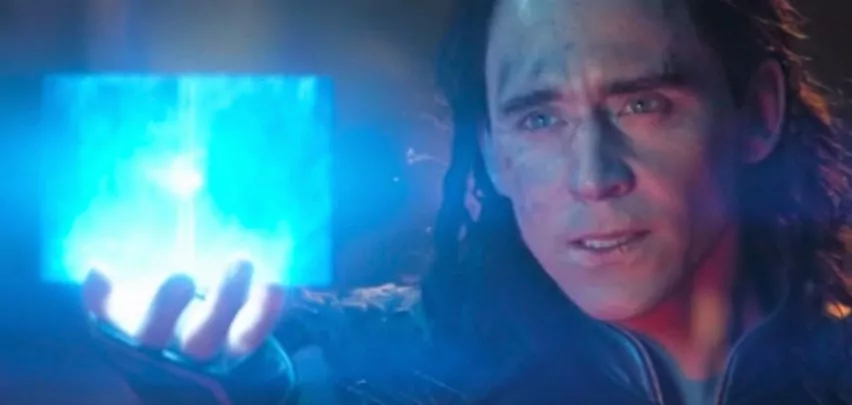
Avengers: Infinity War (2018)
In Avengers: Infinity War, Loki gives the Tesseract, which he had secretly taken from Asgard, to Thanos in order to save Thor’s life having come a long way from trying to kill Thor himself. He pretends to side with Thanos, but then tries to kill him and fails. He calls himself ‘Prince of Asgard’ and ‘Odinson’ as well as the ‘rightful King of Jotunheim’, embracing both sides of his existence. He is crushed to death by Thanos, and mourned by Thor.
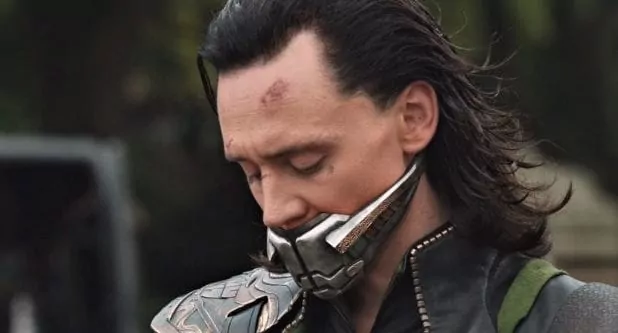
Avengers: Endgame (2019)
Loki makes a brief appearance in Avengers: Endgame. After the events of Avengers (2012), when Loki is being taken away to Asgard as a prisoner, the Avengers time travel from the future to steal the Tesseract. Amidst the chaos, Loki sees the Tesseract unattended and disappears with it. Although small, this scene is extremely significant as it sets the scene for Loki (2021), the series.
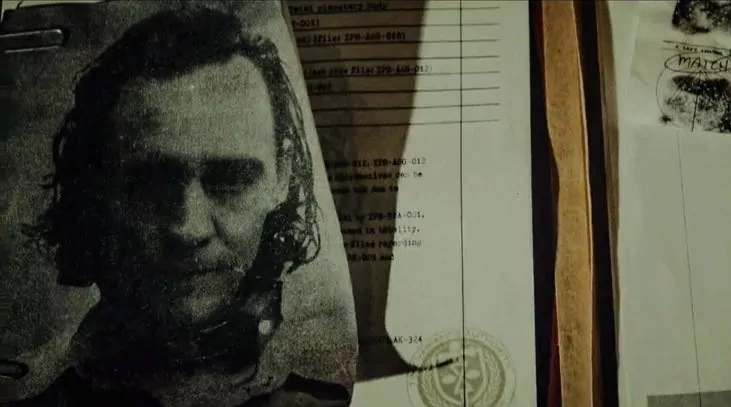
Disney+ Loki TV Series (2021)
A version of Loki, who hasn’t lived past the events of Avengers (2012) as he had escaped with the Tesseract, is arrested by the Times Variance Authority (TVA) for crimes against the ‘Sacred Timeline’. He is sentenced to be ‘reset’, as in killed, but is saved by Mobius who wants to enlist his help in capturing another variant of Loki. Loki is initially uncooperative with Mobius, and continues to put forth his belief that he was ‘born to rule’. He is told by Mobius that he exists so that others could attain the best versions of themselves, which might have impacted his self-worth. He escapes the room where he was being questioned, but returns when he finds infinity stones being treated as nothing in the TVA. Realising that the TVA might be the greatest force in the universe, he hopes to overtake their leaders, the Time Keepers, someday. There he watches a video projection of his actual future, that is, the events after the invasion of New York. He is visibly distressed and emotional after finding out the future of his ‘set path’, and later confesses to Mobius that he doesn’t enjoy hurting people, but that the malice in his actions are a way of maintaining fear and control. Loki is seldom self-aware, so this comes across as quite the emotional development.
Loki works with Mobius and the TVA, but hopes to join forces with the variant Loki to take over the TVA. He initially stalls the variant’s capture. Later he helps Mobius track the variant, a female Loki who calls herself Sylvie, only to escape with her. He tries to convince her to team up with him, but is met with cold rejection. When both are forced to team up to escape imminent doom, Loki opens up to Sylvie more than we see him open up to anyone. He talks about his romantic endeavours, admits that no connection ever felt real to him, talks about his relationship with Frigga and even apologises when he realises his mistake that led them to be trapped on Lamentis.
He even becomes enamoured with Sylvie and this attraction towards another variant of himself is treated as a ‘nexus event that could break reality’. Mobius calls this attraction ‘narcissistic’. While on the surface this might seem like the truth, Loki liking Sylvie might not be because she’s like him-because she isn’t, not entirely- but rather because she is driven in a way that he never was.
When Loki finds out that the TVA employees are all variants, he is genuinely worried for them and tries to warn Mobius. He is also upset when Mobius is pruned. After a fight that leads to the discovery that the Time Keepers are only machines, Loki tries to confess his feelings for Sylvie, but gets pruned before he can. These feelings, as he rightfully states, are new for him.
He is quick to befriend other variants of himself in The Void, and even calls Mobius his friend before they part ways. Unlike the other times when Loki befriended people for his benefit, his care for Mobius, the other Loki variants and Sylvie is real. This is strange since Loki never considered Thor and his friends as his own even after thousands of years together. This might be because, back then, Loki had taken all his relationships for granted and now that he’s lost everything, he is valuing every person in his life.
He agrees to help Sylvie find the mastermind behind the TVA, and helps Sylvie use enchantment against the shapeless monster Alioth, a magic trick he’d never used before. When he fears that killing ‘He Who Remains’ would unleash chaos and destruction on the Universe, he tries to stop Sylvie, but she distracts him with a kiss and sends him away.
Loki himself had attempted to take over the Universe and mocked Thor who tried to save it. To now watch him trying to save people and stopping Sylvie feels like he’s come full circle. He is now in Thor’s position, trying to convince someone he cares about that what they’re doing is wrong.
In the end, Loki fails in trying to stop Sylvie from killing ‘He Who Remains’ and stands helplessly at the TVA when he sees that Monius and the others have forgotten him and a multiverse of alternate timelines has already been released. Check our review of Disney+ Loki Season 1.
The Movie Culture Synopsis
Loki is interesting in the sense that on most occasions, he doesn’t fall into the black and white of categorizing characters as protagonists and antagonists. His shifting motivations and loyalties leave the audience wondering what he’ll do next.
While unpredictable, Loki is also conflicted. He never seems to fully know what he expects from people or from himself. Him being told that he was born to rule and then being told that he was destined to die might’ve played a part in his indecisive existence. After the events of the first movie, Loki seems to be oscillating between vengeance against the entire Universe for the betrayal he believes he suffered, and wanting to be noticed and revered. He is not devoid of emotion, but acts more on spite and anger than he does on love and concern.
He is evasive in nature, often faking his death to escape or using illusions in battle to avoid direct confrontation. Towards the end of his character arc, Loki is more self-aware of his motivations and actions and seems to openly care about others more than himself.
In the end, two quotes summarise Loki’s character arc better than I ever could. The first by Frigga- ” Always so perceptive about everyone but yourself.” And the second by Loki himself, when asked by Banner about where his intentions lie- “It varies from moment to moment.”

